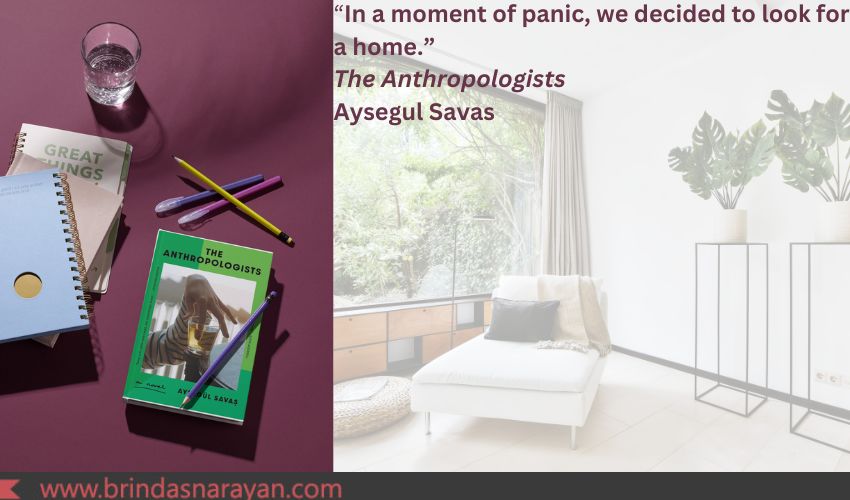
The Anthropologists: Crafting Everyday Rituals To Shore Up Identity
I’m probably not the first writer to consider how anthropologists and novelists are remarkably similar. Both pay attention to seemingly ordinary stuff – rituals, habits, rumors, gossip, everyday frictions, tiny miracles or small setbacks that stitch up our everydays.
What the Turkish writer Aysegul Savas does, remarkably enough, in The Anthropologists, is to engage us without resorting to plot twists or high drama or even any kind of thrumming conflict. The book then is almost like an anthropologist’s take on a novel. Her section headings intentionally have an anthropological bent: “Principles of Kinship”, “Threshold”, “Present Tense.” Except that she has the literary chops to not just craft fine sentences, which she does, but also to keep us lingering with her cordial, if slightly aloof, characters.
Who are in The Anthropologists, a young couple, Manu and Asya, both of whom started out as scholarship students in an unnamed foreign country and are now trying to solidify their lives with stodgier measures of adulthood. Which they seem to think might involve buying a house and perhaps establishing loose everyday rituals – as opposed to the ropier, more stultifying kind that might have been foisted on them inside their communities. They are aware of how their tenuous freedom – as immigrants they are relieved of pressures to belong – is marked by an ongoing anxiety of feeling completely severed: “There were few rituals to our lives, certainly none that carried any history, at least not the history of traditions, of nations and faiths.”
Manu works at a non-profit while Asya is a documentary filmmaker who has been accorded a grant. She uses it to film visitors to a local park. It’s ironic that she turns her lens on a public space even as she and her partner avidly hunt for a new private one.
She’s clear that she’s not an investigative type of documentarian, the type who conducts heavy research and creates a detailed expose on something. Rather she approaches it with a sighing lightness that seems to characterize the couple’s life and even the novel. For an earlier film, she joined snippets together, of conversations with her parents, or with the neighborhood grocer, wove it all into some kind of narrative. “Sometimes, I believed that making a documentary was a process of empathy, an education. Other times, I thought bitterly that this was simply what documentarians wanted to believe, leaving their subjects as soon as they accumulated the necessary footage.”
Hunting for apartments is like trying on new clothes. It’s not just about assessing new spaces – would they feel cozy in this kitchen, that bedroom – but also about predicting their future selves. Would they fit into this neighborhood, relish this café, befriend these waiters, shop at this grocery and so on? Even as she tries to stay focused on the “present tense”, she can’t help doing what we all do: imagine how this is all going to feel when it translates from being a dreamy possibility into a more weighty reality.
In the meanwhile, the couple do establish their own made-up rituals. Like having dinner with an old neighbor, Tereza, with more formal dinnerware, napkins and other insignia of age-old rituals. Tereza’s seniority seems to emphasize what they’re missing: physical brushes with older folk in their own families. So there’s sadness no doubt, illness and death and other reminders of mortality, but also smaller joys: cups of coffee drunk with friends, whose own lives and relationships undergo shifts.
The city is unnamed, and so is the college that they had earlier attended. We don’t know what countries they are from, but perhaps that doesn’t matter in the face of a bigger question that might confront all moderns or cosmopolitans. In an age where ancient beliefs are fraying and new gods (money, technology, brands) can hardly fill that void, how are we supposed to live? Maybe, as Savas seems to indicate, by just making it up: moment by moment, in your own zany fashion.
References
Aysegul Savas, The Anthropologists, Bloomsbury Publishing, 2024




